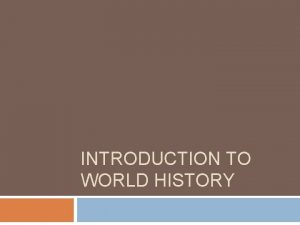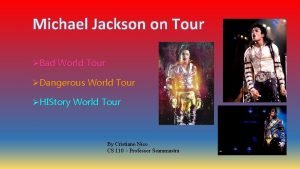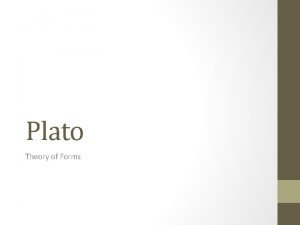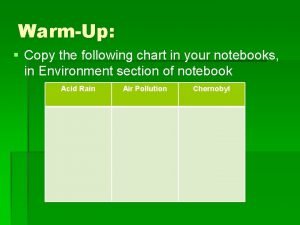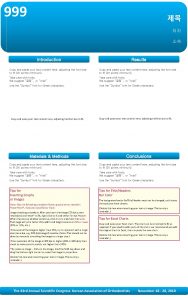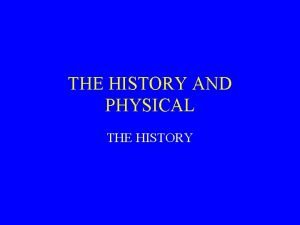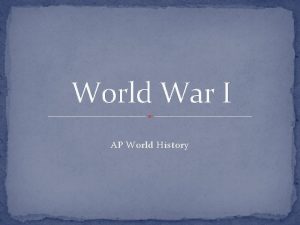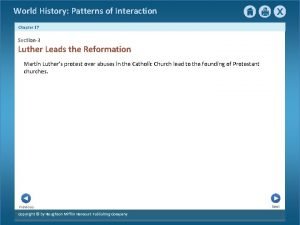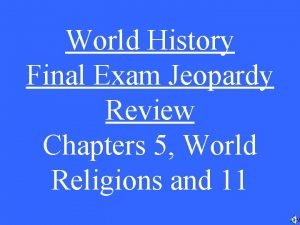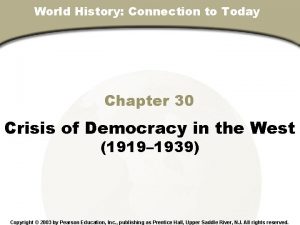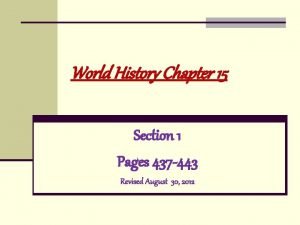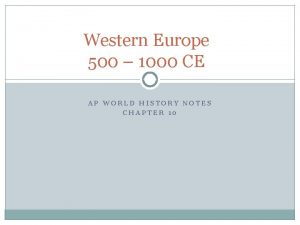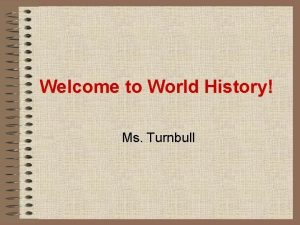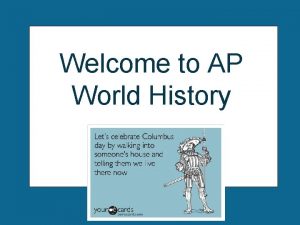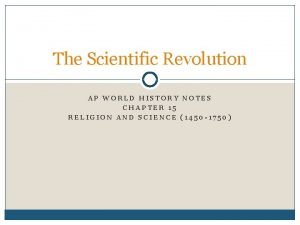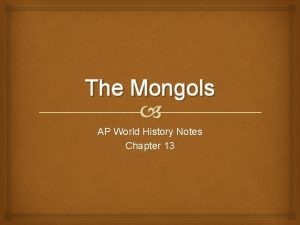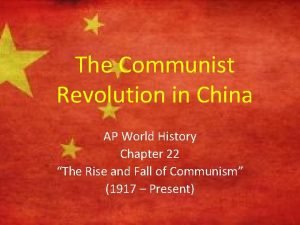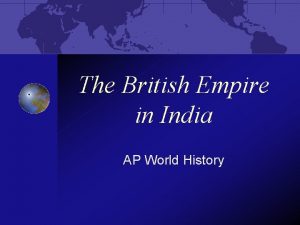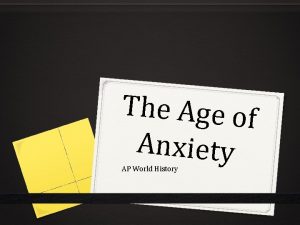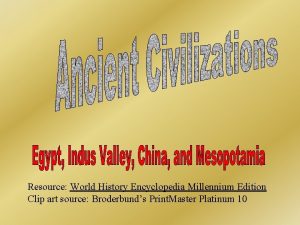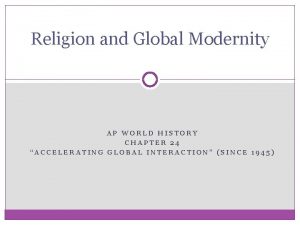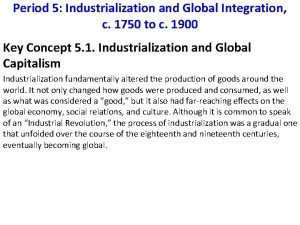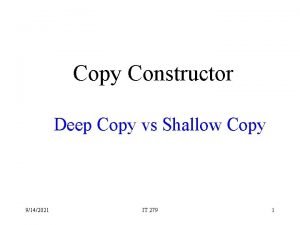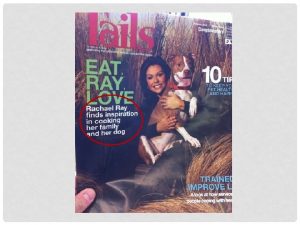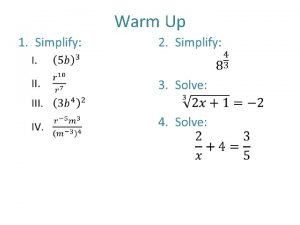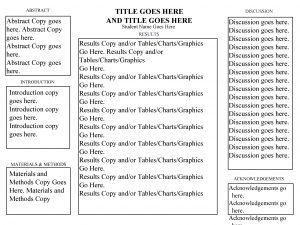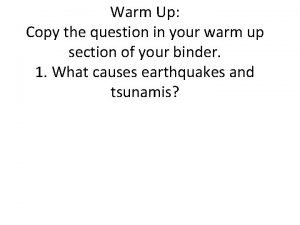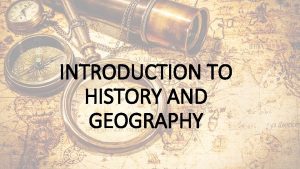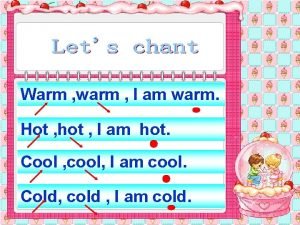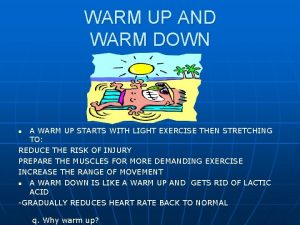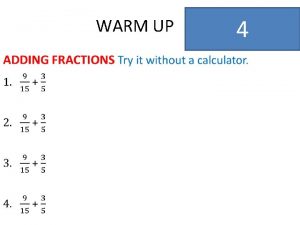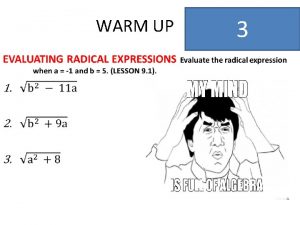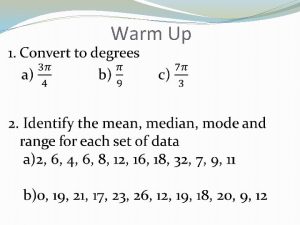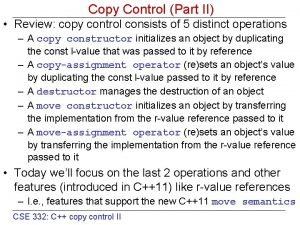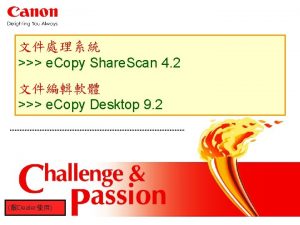INTRODUCTION TO WORLD HISTORY Warm Up Copy EQ




































- Slides: 36

INTRODUCTION TO WORLD HISTORY

Warm Up Copy EQ, OBJ, and HW in first section of spiral. Quickwrite: What do you know about the world? Think about history; think about current events that go on now; think about different places and people around the globe. Don’t stop writing until the time is up!

Think-Pair-Share Discuss with a partner. What did you write about? Did you write about similar topics? Different topics?

History of the World in 7 Minutes http: //www. teachertube. com/view. Video. php? titl e=History_of_the_World_in_7_Minutes&video _id=123544

Create Cornell Notes in the middle section of your spiral. The title goes on the top. On the left, take notes on each slide. On the right, make a thin column for questions. On the bottom, we will summarize at the end.

Why study history? History helps you understand people and societies. Everything that happens today is influenced by the past. Knowing more about the people of the past helps you understand people in the present. You think you just got here without anything affecting you? NOT TRUE! We learn from the mistakes of the past, in order to not make them again. History provides you with an identity. Ex: Race in the United States.

Think-Pair-Share In what ways does the past influence now? Think and write by yourself for three minutes. Pair with a partner, and add to your list. Discuss as a class, and add to your list.

Creation Myths Read annotate the Greek, Chinese, and African Creation myths. How are they similar? How are they different? Create a triple Venn Diagram to compare/contrast them.

Warm Up- Label the regions of the world on your map!

Chronology is the science of arranging events in accordance to their occurrence. Discuss: What is a timeline?

Chronology *Important!* CE stands for “Common Era. ” In the Western calendar, the year CE 1 is the year of the birth of Jesus Christ. AD means the same thing as CE. AD stands for Anno Domini, which means “After Death” in Latin. It is referring to the death of Jesus.

Chronology *Important!* BCE is the era before year one, or the year of Christ’s birth. BCE stands for “Before Common Era. ” BC means the same thing as BCE, except it stands for “Before Christ. ” In BCE, the years count backwards. EX: The year 2000 BCE is farther from the present than 1000 BCE.

Example Timeline Draw this timeline in your journal. 2000 BCE/BC 1000 1 CE/AD 1000 CE 2012 CE BCE/BC Birth of Christ Middle Ages Today

Think-Pair-Share Why would we use CE/BCE now instead of AD/BC?

Prehistory Prehistory is the time before writing was invented. A historian is someone who studies the past and writes about it. We learn about prehistory from Archeology and Anthropology.

Prehistory Before civilizations, people were nomads. They moved from place to place. They always moved to follow the food they hunted. They were hunter-gatherers.

Prehistory Read page 18 in your text book with a partner about two famous Anthropologists.

Lucy Before there were Homo Sapiens, there were Hominids were early humans that walked upright and used simple tools.

Draw this chart in your notes. Tools Hominids used… • Fire • Spears (Sharpened Sticks) • Stone Mallet • Grinding Stone • Hand Axe Tools I use…

Australopithecines- First Tools Homo Erectus- Fire Homo Sapiens (us) vs. Neaderthals (Probably had some fighting and we won)

Social Studies Strategies Handout OPTICS


Read Neolithic Revolution Pages 27 -31

Complete Vocabulary Chart In your vocabulary section of the notebook, create a vocabulary chart for Unit 1, Part 1. Use your notes, your book, and your partner.

History Vocabulary Words Evidence- Information that proves or disproves something. EX: There is fossil evidence to support that early humans used tools. Analyze- To examine critically to bring out the important elements; to identify causes, key factors, and results. Point of View- Ideas held by an individual that express feelings or cause them to take a certain side. How one’s experiences and opinions influence.

Civilization The term civilization normally designates large societies with cities and powerful states. Although there were many differences between civilizations, they also shared important ESPN characteristics.

Economic All civilizations produced agricultural surpluses that allowed significant specialization of labor. Economic exchanges intensified within and between civilizations (trade), as well as with those groups who remained as nomadic herders.

Economic Examples: Money Trade Jobs and Occupations Technology Crops

Social All civilizations also featured clearly stratified social hierarchies and organized long-distance trading relationships.

Social Example: Religion Art Writing Important places/buildings Social hierarchies Interactions with other peoples

Political All civilizations contained cities and generated complex institutions, such as political bureaucracies, armies, and religious hierarchies.

Political Example: Type of government Important leaders Army Laws Education

e. Nvironment All of the major early urbanized civilizations developed in fertile river valleys with some level of protection from outside forces.

e. Nvironment Examples: Geography Neighboring Climate Animals Plants Disease Peoples

ESPN interview Find a partner!

Homework!! Write a 1 page paper describing the history of YOU! Write it in the 3 rd person, like it is a history book. Address all four aspects of ESPN. Due next class.
 World history warm up questions
World history warm up questions World history warm ups
World history warm ups What was the policy
What was the policy Ap world history chapter 25 africa and the atlantic world
Ap world history chapter 25 africa and the atlantic world Dangerous world tour history world tour - hockenheimring
Dangerous world tour history world tour - hockenheimring The world of forms
The world of forms Complete the chart. copy this in your notebook
Complete the chart. copy this in your notebook 999 copy and paste fonts
999 copy and paste fonts Texas history warm ups
Texas history warm ups Us history warm up questions
Us history warm up questions History also history physical
History also history physical How to write leq ap world
How to write leq ap world Total war world history definition
Total war world history definition Chapter 17 section 3 world history
Chapter 17 section 3 world history World history spring final exam review answers
World history spring final exam review answers Ap world history jeopardy
Ap world history jeopardy Chapter 32 assessment world history
Chapter 32 assessment world history Chapter 30 section 2 world history
Chapter 30 section 2 world history What was the counter-reformation?
What was the counter-reformation? World geography spring final review
World geography spring final review Manorial system ap world history
Manorial system ap world history Msturnbull world history
Msturnbull world history Prince henry the navigator ap world history
Prince henry the navigator ap world history Scientific revolution ap world history
Scientific revolution ap world history Chapter 16 lesson 1 the protestant reformation
Chapter 16 lesson 1 the protestant reformation Ap world history chapter 13 notes
Ap world history chapter 13 notes Globalization definition ap world history
Globalization definition ap world history Chinese communist revolution ap world history
Chinese communist revolution ap world history Chinese communist revolution ap world history
Chinese communist revolution ap world history British in india ap world history
British in india ap world history What is the dawes plan
What is the dawes plan Fur trade ap world history
Fur trade ap world history Saq ap world
Saq ap world Russian industrialization ap world
Russian industrialization ap world Art history encyclopedia
Art history encyclopedia Fundamentalism ap world history
Fundamentalism ap world history Zionist movement definition ap world history
Zionist movement definition ap world history

